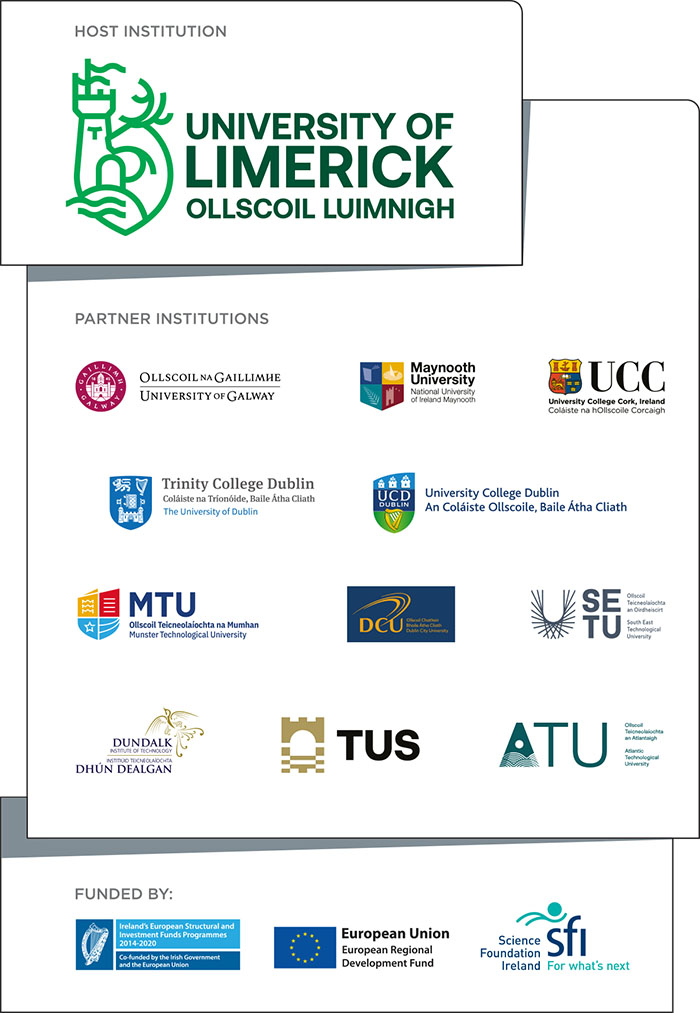Lero contributes over half a billion Euro to Irish economy
You are here
A new report1 finds that every €1 invested by the State and industry in Lero, one of Ireland’s national research centres, generates over five times the value to the economy.
The study by Kemmy Business School at University of Limerick assessed the economic impact of Lero, the Irish Software Research Centre, on the Irish economy through its expenditure. The centre is funded by Science Foundation Ireland (SFI) as well as by contracts from Irish and international technology corporations. The report found that for the period 2005-2018, every €1 invested by public funding agencies and industry partners in Lero contributed €5.25 to the Irish economy on average.
This represents a contribution by Lero to national gross output of over €515 million during this period.
In addition, the Kemmy Business School Report finds that Lero’s economic activity has contributed to the creation of 2,678 jobs nationally.
“In summary, the report finds that Lero has made a significant economic contribution to the Irish economy,” commented Professor Helena Lenihan, economist at the Kemmy Business School and co-author of the report.
Professor Lenihan continued, “There is little doubt that Lero provides other benefits such as boosting software knowledge and positioning Ireland as a key part of the State infrastructure which attracts Foreign Direct Investment and supports local industry. However, this report focuses solely on the ripple effects of Lero’s expenditure in the economy, which shows a strong knock-on economic impact.”
Professor Brian Lucey at Trinity Business School, who was consulted on the report, commented, “The results represent evidence of the wider economic benefits of investing in publicly funded scientific research.” Professor Lucey continued, “Cost-benefit analysis of State expenditure is to be encouraged.”
Lero is part of the world-leading SFI Research Centre network. Since 2005, it has received €98.69 million from national funding agencies including Science Foundation Ireland, the EU and industry.
Headquartered at University of Limerick, Lero is home to more than 200 researchers across all seven Irish universities and two Institutes of Technology. Its research covers a wide range of software development from driverless cars and automation to artificial intelligence and cybersecurity.
“Education and research are vital for national competitiveness and for wider economic prosperity,” commented Professor Brian Fitzgerald, Director, Lero. “The Kemmy Report demonstrates that Lero has had a positive impact on the Irish economy, which is a tribute to the work of Lero research teams across the country.”
Professor Fitzgerald continued, “As well as its economic impact, Lero compares highly favourably with similar research centres internationally. A bibliometric analysis shows that Lero research is cited 96% more times than the expected norm for the field. 31% of Lero research is published in the Top 10 percentile of most cited journals in the field; and 21% of Lero research is in the Top 10 percentile of most cited papers in the sector.”
“It supports our goal to help establish Ireland as a location synonymous with high quality software development, to the extent that ‘Irish software’ can enter the lexicon in the same way as ‘German automotive’ or ‘Scandinavian design’.”
Welcoming the findings, Professor Mark Ferguson, Director General of Science Foundation Ireland and Chief Scientific Adviser to the Government of Ireland added, “Science Foundation Ireland invests in world-class scientific research with deep and significant enterprise engagement, excellence and impact. It is gratifying to note the more than five times economic multiplier impact from investment in the Lero SFI Research Centre in what is an increasingly important sector globally.”
A copy of the report can be downloaded from: https://www.lero.ie/research/economic-impact/kbs-study
1 “An Economic Impact Assessment of Lero-the Irish Software Research Centre, using Input-Output Analysis” by Helena Lenihan, Kevin Mulligan and Mauricio Perez-Alaniz, Kemmy Business School, University of Limerick; November, 2018




